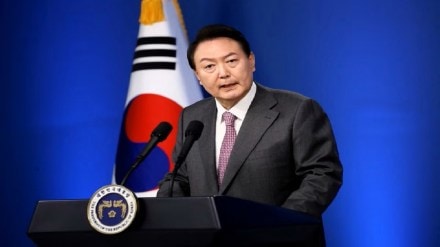In recognition of the strategic importance of the Indo-Pacific, countries around the globe have increased engagement with the region. The essence lies in building Indo-Pacific strategies.
South Korea is no exception and began to formulate its own Indo-Pacific Strategy(IPS) with the inauguration of the Yoon Suk Yeol administration. The Republic of Korea( ROK) launched its comprehensive regional strategy in January 2023, embracing the key elements of economy and security.
South Korea’s foreign policy expands based on strategic action as President Yoon Suk Yeol emphasized.
“We are living in the Indo-Pacific era. Home to 65% of the world’s population, the Indo-Pacific accounts for more than 60% of the world’s GDP, and half of the global maritime transport. Peace and stability in the Indo-Pacific region directly affect our survival and prosperity. That is why I propose fostering a “free, peaceful, and prosperous Indo-Pacific region” through solidarity and cooperation with major countries including ASEAN”: President Yoon Suk Yeol.
In fact, as a fairly developed economy which is largely based on export and supply chain mechanisms, Korea’s next leap forward depends on a peaceful and stable Indo-Pacific Region (IPR). Not surprisingly, for South Korea, the Indo-Pacific represents 78% and 67% of total exports and total imports, respectively. More so, South Korea’s top 20 trading partners are located in the Indo-Pacific which also accounts for 66% of foreign direct investment in the region.
A bold Indo-pacific Strategy
It is a key indicator as how South Korea will align itself with the United States or China in the Indo-Pacific region after years of “strategic ambiguity” pursued under the previous Moon Jae-in government.
While Moon Jae-in’s government did pursue a New Southern Policy (NSP) which also had the undertones of the U.S. vision for a free and open Indo-Pacific, it fell short of the institutional framework and strategic actions.
“Now, the IPS is indeed an important element of Yoon’s value-oriented diplomacy for his promotion of freedom and democracy and it is evident in his remarks,” points out Santosh Kumar Ranjan, Assistant Professor at Centre of Korean Studies, JNU.
In its new approach, the South Korean government broke away from the constraint on China, putting forth a clearer strategic roadmap which is not directed towards any particular nation as the paper amply emphasized.
President Yoon rises up to the expectation as he was emphatic in his opposition to the unilateral attempts to change the status quo in the Indo-Pacific.
South Korea’s IPS for India
In its overall Indo- Pacific strategic roadmap, South Korea has outlined carefully that an inclusive Indo-Pacific Strategy neither targets nor excludes any specific nation.
However, India remains a key player in the region and holds key responsibilities to maintain a free. Inclusive and rule-based order in the region, if not beyond. The ROK does recognize the fact that greater security cooperation with India only enhances its strategic depth.
The IPS clearly reiterates that South Asia with 24% of the world’s population and situated at the crossroads of East and West Asia, and between land and sea, is a region with huge potential for growth.
Further, the IPS outlines that the ROK will advance a special strategic partnership with India, a leading regional partner with shared values.
“India presents great potential for growth, having the world’s second-largest population and cutting-edge IT and space technologies. We will increase strategic communication and cooperation through high-level exchanges in foreign affairs and defence while strengthening the foundation for enhanced economic cooperation by upgrading the ROK-India Comprehensive Economic Partnership Agreement (CEPA),” it elaborates.
Giving it an institutional framework, the ROK also launched the Indo-Pacific Economic Framework for Prosperity (IPEF).
The importance that it attaches to is clearly evident when the IPS put a lot of emphasis on regional cooperation in critical domains of science and technology, including semiconductors, artificial intelligence, quantum science, advanced biology, next-generation telecommunications, and space, and helps close the digital gap in the region.
Quad for South Korea?
Interestingly, the launch of South Korea’s Indo-Pacific Strategy also opens its outlook for the Quad group—the quadrilateral group of India, the US, Japan and Australia.
In an interaction with the author, Kim Kihyun, Director of the Asia and Pacific Division at the Ministry of Foreign Affairs, South Korea welcomes the Quad construct as being part of rule-based order and alignment in the Indo-Pacific region.
In fact, within the US–ROK alliance framework, South Korea would also cooperate on a working level with members of the Quad Plus both in economic and security domains.
Overall, there are huge expectations from South Korea in the region now.
